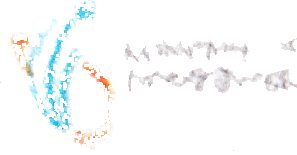On languaging care in a pandemic
1 February 2021
1 February 2021
—What was work like for you over 2020?
—I mean, to be honest, nerve wracking? It's been hard because everything felt like it was operating in contingency. And so in that sense, it felt like work was what's happening in contingency. I didn't actually enjoy most of the work that I did, because there would suddenly be a manic flow of things coming around, then you felt that it would be weird to complain about it, since it's a privilege to even have work but at the same time, recognizing how toxic it is. During the lockdown, there was a conversation about degrowth blah blah blah, but the moment that lockdown was lifted, all that rhetoric fell away very quickly and it felt like there was overcompensation. It felt even more extractive in a very strange way.
—I mean, to be honest, nerve wracking? It's been hard because everything felt like it was operating in contingency. And so in that sense, it felt like work was what's happening in contingency. I didn't actually enjoy most of the work that I did, because there would suddenly be a manic flow of things coming around, then you felt that it would be weird to complain about it, since it's a privilege to even have work but at the same time, recognizing how toxic it is. During the lockdown, there was a conversation about degrowth blah blah blah, but the moment that lockdown was lifted, all that rhetoric fell away very quickly and it felt like there was overcompensation. It felt even more extractive in a very strange way.
—Was this sense of contingency exceptional to COVID?
—The juxtaposition was felt more acutely during the COVID period. In a very perverse way it was being sharply juxtaposed with the kind of rhetoric of care and support and solidarity that was circulating. The sharpness of the incommensurability of that rhetoric and languaging with the actual practice of work relations was felt very acutely to me. I mean, of course, there's always a level of extractedness that is always pervading already. But during this time,I couldn't work at something that was growing or nurturing or flourishing. And I think that ironically became a huge block to me and my work.
—The juxtaposition was felt more acutely during the COVID period. In a very perverse way it was being sharply juxtaposed with the kind of rhetoric of care and support and solidarity that was circulating. The sharpness of the incommensurability of that rhetoric and languaging with the actual practice of work relations was felt very acutely to me. I mean, of course, there's always a level of extractedness that is always pervading already. But during this time,I couldn't work at something that was growing or nurturing or flourishing. And I think that ironically became a huge block to me and my work.
—Yeah, I mean, it's so disappointing. And it makes me very frustrated. It makes me really angry to hear an institution talking about care but it's not folded into their practice. Now, under the guise of, “we're helping you in a time of crisis, you should be even more grateful.” The alternative world would be one where we go, “Oh, wait, can we take this opportunity to not have to put out so much shit, but to have long conversations and take care of each other?” Making sure the timescales match with people's actual wellbeing.
—I was sharing with a friend this series of screenshots from Twitter, like, “Hey, oh my god, like 2020 was crazy, I’m sorry to hear about your hospitalization. By the way, Can I follow up on this capitalist bullshit thing? We have to get back on track.” That’s the template of a lot of these emails. Like I'd rather you just not pretend to care.
